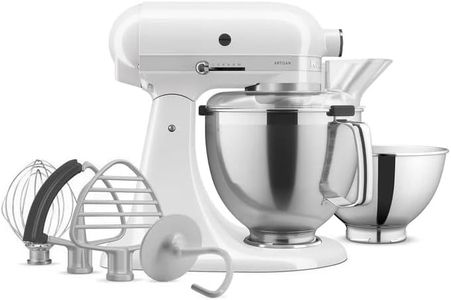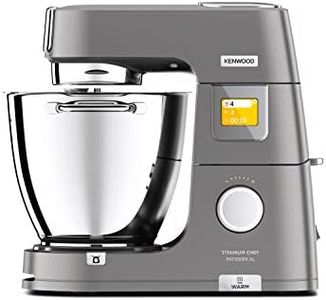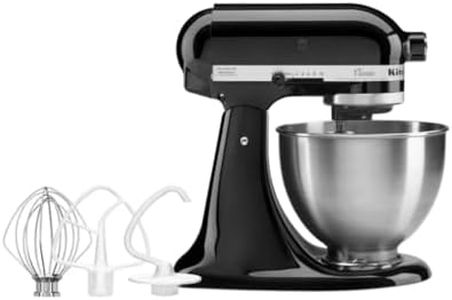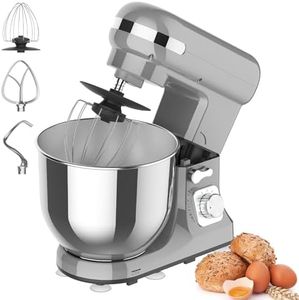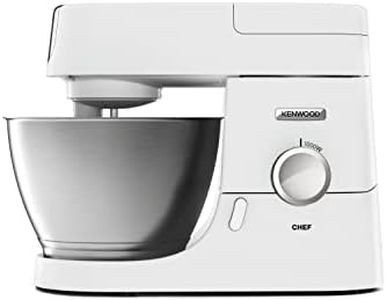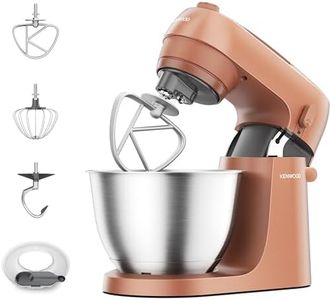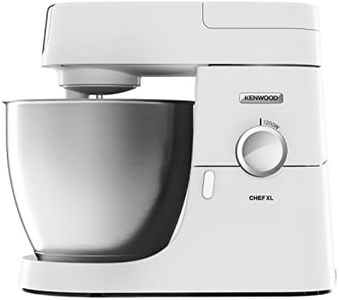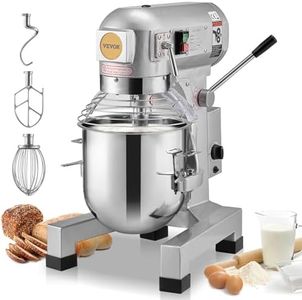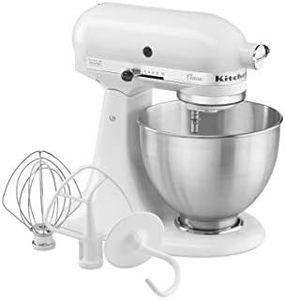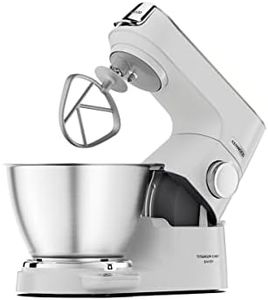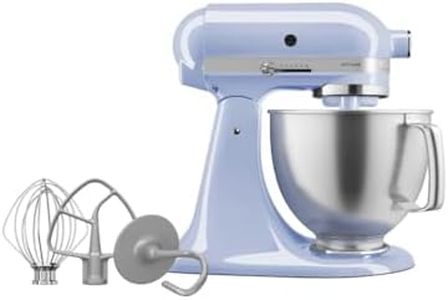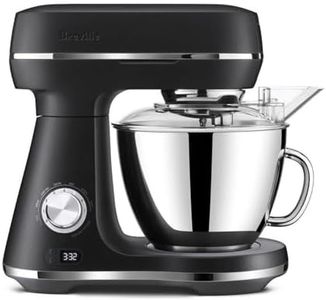We Use CookiesWe use cookies to enhance the security, performance,
functionality and for analytical and promotional activities. By continuing to browse this site you
are agreeing to our privacy policy
10 Best Commercial Kitchen Mixers
From leading brands and best sellers available on the web.By clicking on a link to a third party's website, log data is shared with that third party.
Buying Guide for the Best Commercial Kitchen Mixers
Choosing a commercial kitchen mixer is an important decision, especially if you run a bakery, restaurant, or catering business. The right mixer can boost your kitchen's efficiency, help you tackle larger quantities, and withstand heavy daily use. Before making a decision, it's crucial to think about the types of food you'll be preparing, the volume you need to process, and how often you’ll use the mixer. Always consider your current and future business needs, because a mixer is an investment meant to last for years.CapacityCapacity refers to the volume of ingredients that the mixer’s bowl can hold, usually measured in quarts or liters. This is a critical spec because it determines how much dough or batter you can make in one batch, directly impacting your kitchen’s productivity. Smaller mixers (5–10 quarts) are great for light-duty, occasional use, such as sauces or small batches. Medium capacity (10–30 quarts) is suitable for most bakeries or restaurants handling moderate production. Large mixers (30+ quarts) are designed for heavy, continuous use and high volumes. Choose the size based on the largest batch you’ll regularly prepare, but don’t oversize, as extremely large mixers may not work well with small batches.
Power (Motor Strength)The power of a kitchen mixer is defined by the strength of its motor, which is usually indicated in horsepower (HP) or watts. This matters because a stronger motor can handle denser mixtures, like stiff bread dough, without straining or overheating. Lighter tasks like whipping cream require less power. Typically, light-duty mixers have motors under 1/2 HP, while heavy-duty mixers have motors of 1 HP or more. When deciding, consider what types of mixtures you’ll be handling; for frequent bread or pizza dough, opt for a higher-powered motor, while lighter batters and cream can be managed with less power.
Mixer TypeThere are a few main types of commercial kitchen mixers: planetary (or vertical) mixers and spiral mixers. Planetary mixers have a single agitator that moves around the bowl like a planet, making them versatile for different mixing attachments and suitable for general tasks. Spiral mixers have a spiral-shaped agitator and a rotating bowl, and they're specially designed for heavy dough like bread and pizza since they mix more efficiently and gently. Pick the mixer type that best fits the main products you make; general bakeries may prefer planetary for flexibility, while pizzerias often choose spiral for dough performance.
Speed SettingsSpeed settings refer to how many different speeds the mixer can operate at, typically ranging from one to several. This is important for accurately mixing different ingredients—slow speeds are good for kneading dough, while faster speeds are suitable for whipping and aeration. Mixers with more speed settings offer better control over texture and consistency. If you make a wide variety of items, more speed choices can help you achieve ideal results for each recipe.
Build Quality and MaterialsBuild quality and materials affect the mixer’s durability and hygiene. Commercial mixers are commonly made of stainless steel, which resists corrosion and is easy to clean, but you may find some with metal or reinforced plastic parts. Solid construction means the machine will stand up to heavy use and last longer. For commercial kitchens, always look for models labeled as food-service rated, with stainless steel bowls and attachments, to ensure durability and safety.
Attachments and AccessoriesAttachments include items like dough hooks, paddles, and whisks, and they determine what tasks your mixer can handle. Some mixers offer extra accessories like meat grinders or slicers. The availability and compatibility of attachments can expand your mixer’s functionality. If your menu changes frequently or you want versatility, look for mixers compatible with a wide range of attachments to get more value and flexibility from your equipment.

